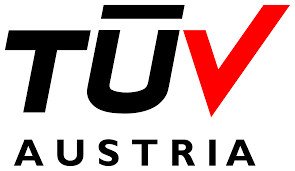
KNA COOPERATED WITH TUV AUSTRIA HELLAS ON AUDITING FSC STANDARDS IN VIETNAM
After time of exchanging and discussing, KNA CERT has successfully signed a cooperation agreement with TUV Austria on FSC/CoC certification services. Accordingl...
ISO 9001:2015 is one of the most popular set of quality management system standards in the world. This standard helps enterprises to creat their best quality management system, which enables business activities to be well undertaken. 8 basic things will allow you and your enterprise perfectly manage this ISO system.
Details of ISO 9001
A quality management system (QMS) is a way to help everything in your organization gain good results which are suitable for your overal objectives. Its origin includes a structure of processes, human, machine and other resources to attain goals of quality. ISO 9001 is an international standard of systems.

It is a solid foundation, systematically arranged and used by organizations, especially they can maintain the effective management of quality.
Is ISO 9001 for everyone? More companies are now aware that their customers want to ensure that their products and services which customers desire to buy can meet demands for their quality.
Customers are seeking assurance of their products which are followed the best method of quality management. This is the reason for the appearance of models of ISO 9001.
8 basic things of ISO 9001
8 basic things of ISO 9001 was established by principles of quality management which allow organizations to apply quality to their products and preserve values for their customers. These principles based on set of values which are considered to be right and acceptable in the world.
1: Customers are the central of everything.
The main focus of QMS (Quality Managment System) according to ISO 9001:2015 is satisfy and exceed customers' expectations. You can see ISO 9001 at the workplace when you observe enterprises that develop from loyal customers and expand new customers. The more important thing is that companies must apply ISO 9001 to planning, goods and services development and provision to meet demands concerning customers' quality.
2: Leaders at every level need to ensure the consistency of goals and orientation.
Leaders do not speak, command employees to do this or that. Effective leadership requests culture of work, more specifically, everyone know and fulfil requirements properly. The first example is an incantation, which encourages employees to have code of ethics in workplace without urging them to finish their work. Leaders also have to improve the coordinating and media system among all functions in an organization in order to reach quality goals.
3: Employees have to join in enterprises' activities.
The participation of all members is one of the most important basises of ISO 9001, everyone is key elements of an organization. When employees join in an organization's activities, they become competent and are empowered to hold values. Participants must be respected as individuals, be recognized because of their achivements. Furthermore, they have opportunities to enhance personal development.
4: All members need to understand ways to access processes.
Leaders need to be pioneers. When being employees, they will see that every individual activity is an important part in a process to build a coherent system. For leaders, employees and process should not work in one "silo". Employees' activities should be managed as a process to reach a specific goal. The approach to process allows enterprises to obtain results predicted. This also helps to enhance people's concentration to attempt at improvement process.
5: Continuous improvement is always made.
Successful organizations consider continuous improvement as a mission. They can adapt to changes of internal and external environment if necessary. For example, technologies rapidly develop so they become easily obsolete. To prevent this situation, the staff members at every level need pre-audit in ways to use tools and new methods. Leaders also need integrate allowances with a view to promoting products, services and new processes.
6: Decisions with concrete evidences should be made.
Making a decision can be a quite complex process which relates to multiple inputs and interpretation. All necessary documents of decision-makers must be extremely precise, trustworthy and safe. These documents should be assessed by authorized individuals who use effective methods. Precision and detailed data analysis will result in sensible decisions.
7: The relationship Foster with relevant partners
Successful organizations establish relationships with relevant partners, which affects the capacity of their organizations. Partners can consist of suppliers, sellers, investors, employees, customers and the community.
In addition to employees and customers, companies emphasize their own importance by maintaining the continuity of supply chains with suppliers, agencies and investors.
8: The approach to system need to be used.
The approach to process relates to the approach to system; in fact, this is a part of the approach to system. In other words, knowledge, analysis and management of relevant processes help to create a coherent system, be effective and achieve an organization's objectives.
Understaning basic things of ISO 9001 is the first important step in deciding whether you need a QMS ISO 9001 or not. Before doing that, you can put two question for yourself. The first one is why do you need a standard?
